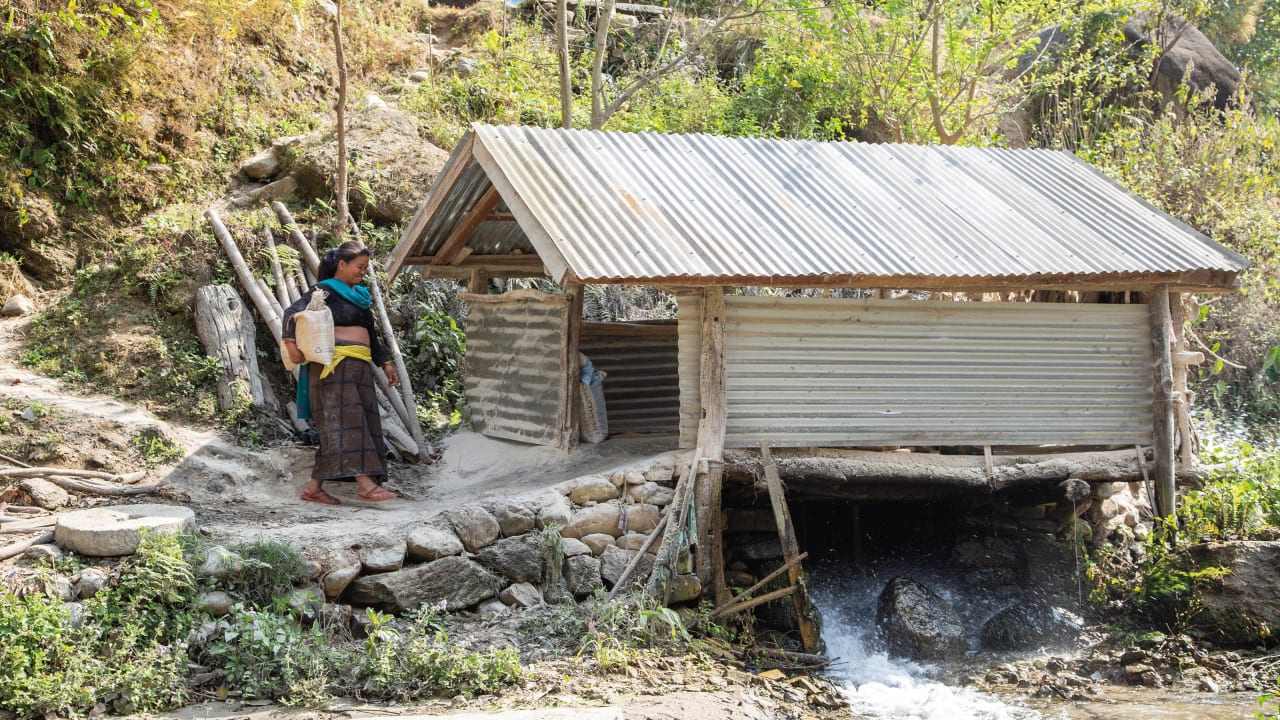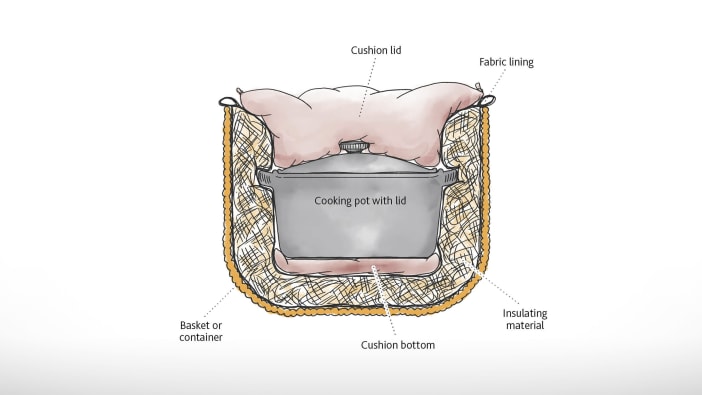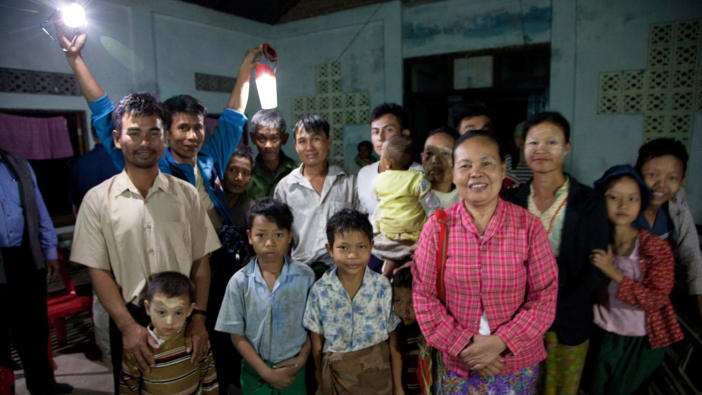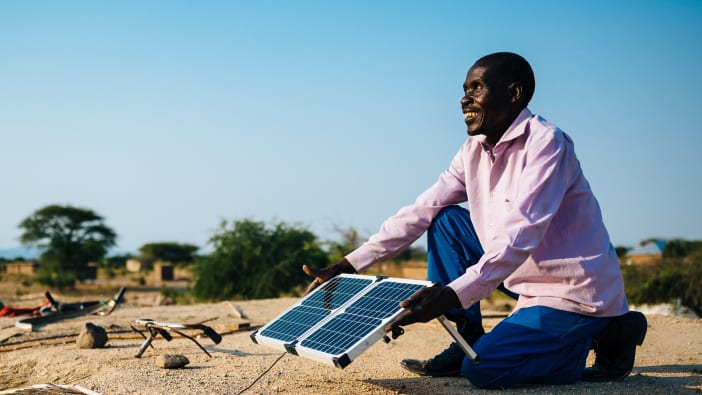Water, flowing from the high Himalayan mountains, is one of Nepal’s most important natural resources. The abundance of rivers and streams means the country has great potential for hydropower, and several schemes already provide electricity to people in Nepal’s larger towns and cities.
However, the mountainous terrain and remote nature of many of Nepal’s villages mean it is too technically difficult and expensive to connect everyone to the national electricity grid. As a result, many people in rural communities still rely on firewood for cooking and kerosene lamps and candles for lighting.
Micro-hydropower
One effective solution is the installation of community-owned and operated micro-hydropower schemes in rural areas.
Malekhu Khola micro-hydropower plant was established in 2010 and provides electricity for about 260 households. Phul Kumari, who lives nearby with her family, says, ‘Before the hydropower plant was constructed, the community was dark. We had to walk for several hours to Malekhu to get kerosene because there was no transport. There would be shortages of kerosene sometimes meaning the children could not do their homework in the evening.
‘The kerosene lamp gave out a lot of smoke. We had to sit close to the lamp to read, to be able to see everything. The smoke would get into our noses and mouths. Now that we have the hydropower plant and lights, our children can easily study in the evenings and our health is better.’
New opportunities
As well as providing electricity for light, refrigeration and the charging of appliances, the micro-hydropower plant has allowed the community to develop new small enterprises including sawmills, tailoring workshops and poultry farms.
The water leaving the plant can be redirected into fields or vegetable patches for irrigation, or can be used to power small mills. These mills are used to hull rice, grind grains into flour and press oil from seeds. Some of the mills have been upgraded to run off electricity as well, making them more efficient.
Phul Kumari says, ‘Before the mill, everything took us a lot of time to do. We used to get up at 4am to prepare the rice and maize using a dhiki or janto (traditional manual grinders). Only after we had finished doing this, at 6 or 7am, could we do other work. It was hard when the children were small.
‘We now take the grains to the mill once a week and leave them there to be ground. We can then pick them up later. It saves a lot of time.
‘Our children’s education depends on the income we make. If we make enough money, we will send them to a good school. That is why I am interested in business. I am starting a poultry farm and I grow vegetables too whenever I have time.’
Ram Bahadur is the manager of the Malekhu Khola hydropower plant. He says, ‘Having electricity has made a huge difference. Students can study when they want to and they can learn how to use computers. The health centre can keep medicines cool and it is safer for women delivering babies at night. We can use a rice cooker and fridge at home.
‘Being able to watch television offers us a chance to see, hear and understand the world. Without electricity, we would not have made as much progress as we have. Electricity has resulted in positive changes across many areas of life.’









